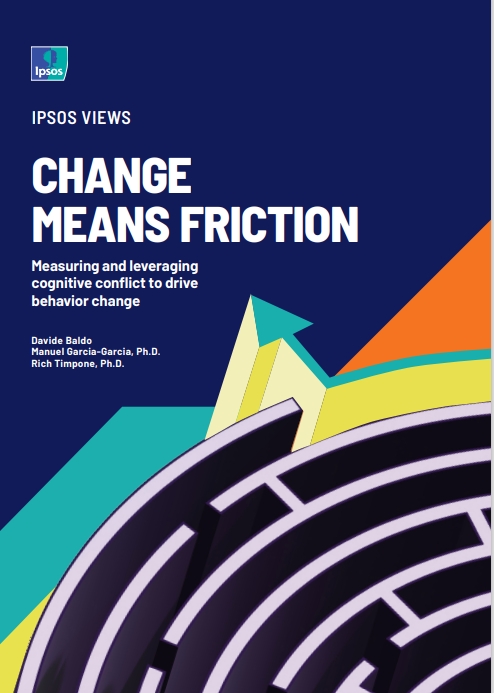Change Means Friction
 Every day we are faced with a wide range of decisions that affect every aspect of our lives. Cognitive conflict describes our mental state when we are confronted with new information that clashes with our existing experiences, attitudes, beliefs, and habits. It is a critical component of decision making and a key driver in shifting from habitual, mindless choices to more thoughtful, conscious choices, which can ultimately lead to behavioral change.
Every day we are faced with a wide range of decisions that affect every aspect of our lives. Cognitive conflict describes our mental state when we are confronted with new information that clashes with our existing experiences, attitudes, beliefs, and habits. It is a critical component of decision making and a key driver in shifting from habitual, mindless choices to more thoughtful, conscious choices, which can ultimately lead to behavioral change.
In this paper we explore why cognitive conflict matters and what measures are available to help us better understand people’s decisions, drawing on case studies to illustrate how closely cognitive conflict is linked to behavior change.
In particular, we focus on Decision Process Tracing, a proprietary and patented solution developed by Ipsos. This methodology measures the amount of conflict present in a decision by analyzing the physical path of a trace that people make when choosing between two options. It can distinguish heuristic brand selection from more deliberative brand choice, including identifying the different types of evaluation across different brands by the same individuals in the same category. It has also been able to identify where significant numbers of people’s stated preferences are conflicted, and prone to change, such as in the choice of election candidates.
Key takeaways:
- Cognitive conflict is a key driver of behavior change
By experiencing conflict between existing beliefs and new information, people are more likely to engage in deeper thinking and potentially change their future behavior. - Measuring cognitive conflict can predict behavior change
Tools like Decision Process Tracing can identify individuals who are more conflicted and thus more likely to be receptive to change. - Effective interventions induce cognitive conflict
Messages, experiences, and other interventions that successfully challenge existing beliefs and habits can lead to greater conflict and pave the way for long-term behavior change.


![[WEBINAR] Resetting for 2026 Innovation & Sustainable Growth](/sites/default/files/styles/list_item_image/public/ct/event/2025-11/thumbnail-iuu-ccc_1.jpg?itok=XbzrKNtD)
![[WEBINAR] Perceptions of Prosperity: Californians and Americans Assess Where They Stand in a Changing Economy](/sites/default/files/styles/list_item_image/public/ct/event/2025-12/thumbnail-templates_1.png?itok=1kPQblxS)